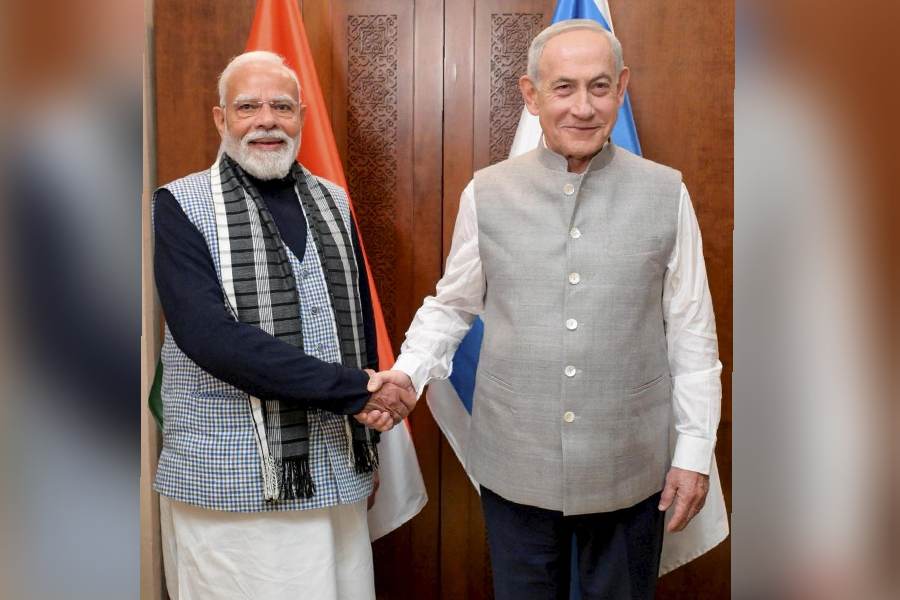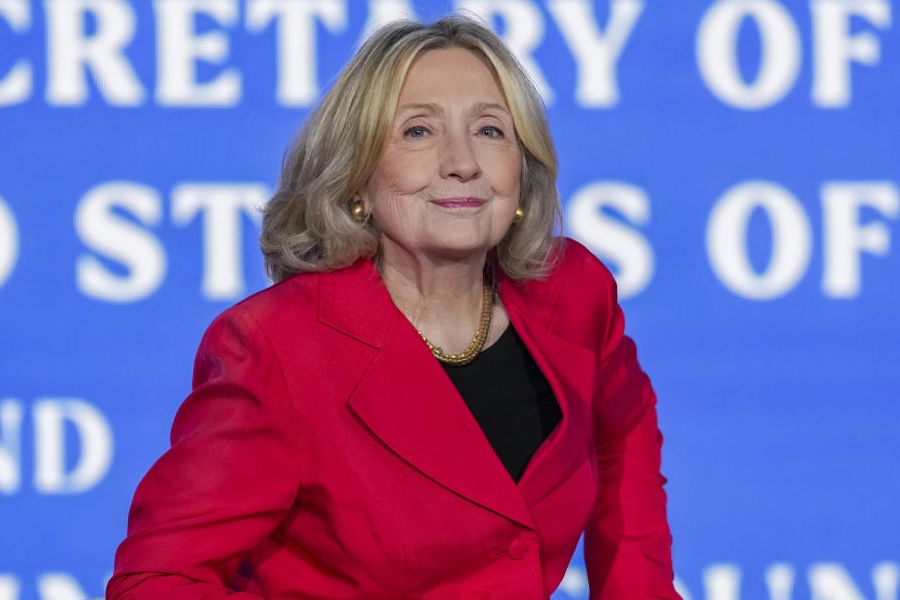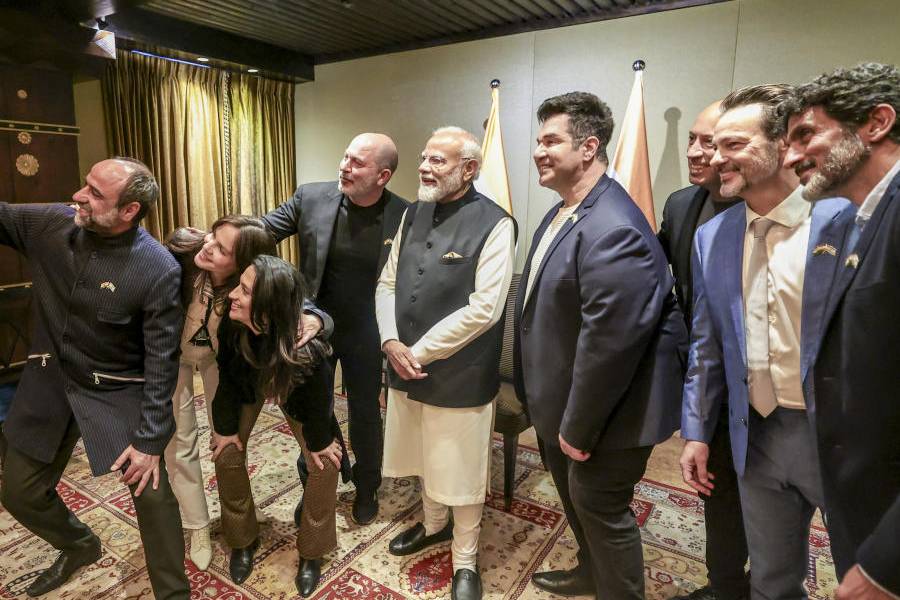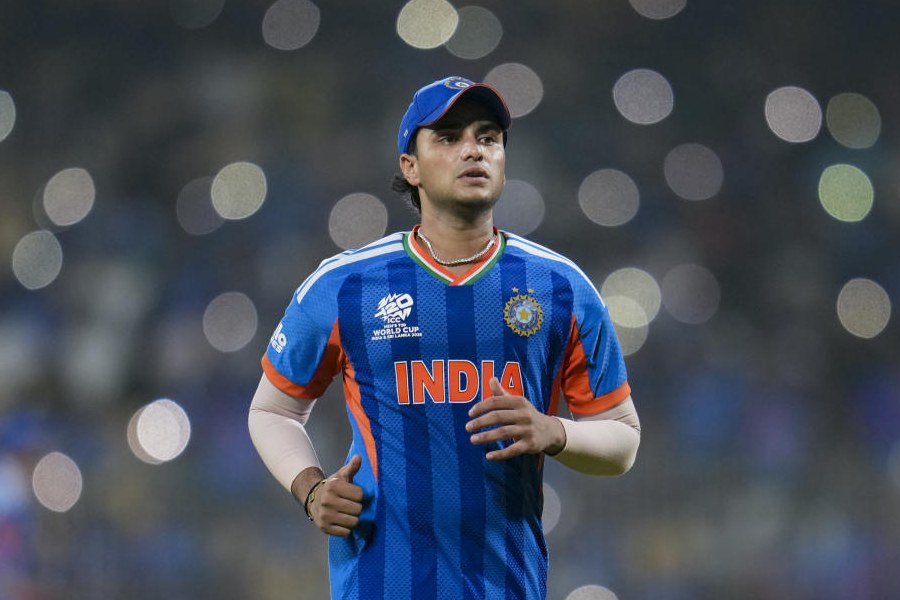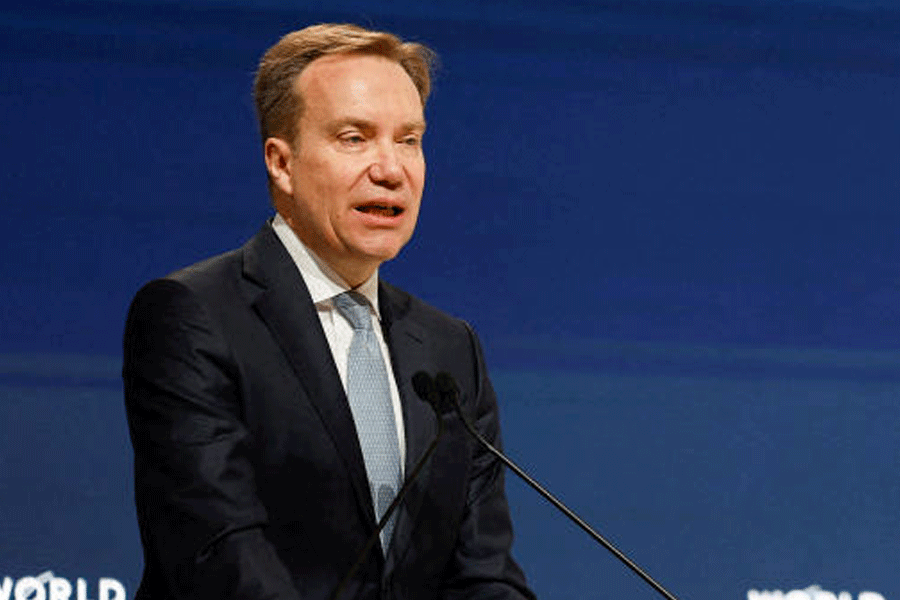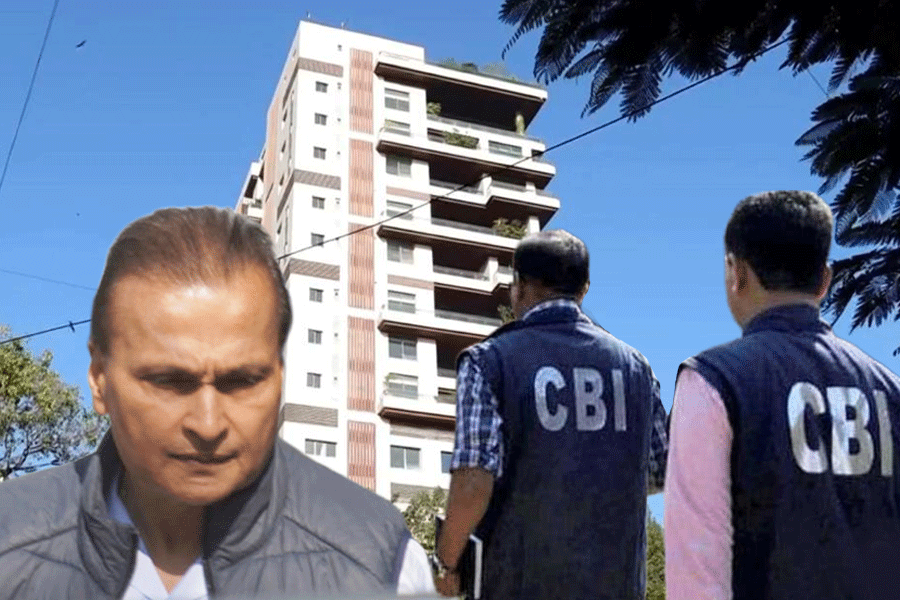 |
| Alice and Aamir in Rang De Basanti |
London, Jan. 6: Alice Patten, 26, daughter of Lord (Chris) Patten, Chancellor of Oxford University, is introducing her father to the joys of Bollywood, it was disclosed today.
She has given her father a copy of Lagaan for Christmas.
Alice, an English actress just beginning to make her name in Britain, is one of the leading ladies of the Hindi film, Rang De Basanti, which stars the ubiquitous Aamir Khan. The other leading lady is Soha Ali Khan.
Alice’s father is not entirely unfamiliar with Indian theatre, however. As Chancellor of Oxford, he officiated at the elaborate ceremony last summer when Prime Minister Manmohan Singh arrived with a high-powered delegation to be awarded an honorary degree.
Meanwhile, Bollywood’s love affair with English rose actresses is continuing with an enthusiastic publicity campaign being mounted in London to project Alice’s role in what is likely to prove one of the big Indian movies of 2006.
“It was an amazing experience,” Alice told The Telegraph today of her five months shooting Rang De Basanti in Delhi, Amritsar and Jaipur.
Since the film’s male lead is Aamir, Rang De Basanti, which releases worldwide on January 20, is likely to be a hit in the UK.
“Since so much of it has been shot in Punjab, I think Punjabis in the UK will like it,” ventured Alice, who had two auditions in London and a screen test in Mumbai before she won her role.
“It’s my first film,” added Alice, who makes her West End debut in a very different role ? Ophelia in Hamlet ? at the New Ambassador’s Theatre on February 13.
For her Bollywood debut, she had to learn Hindi lines. “I play Sue McKinley, a documentary film-maker in London who is left a diary by her grandfather who had served in the Indian police force before Independence,” she explained.
“He had imprisoned freedom fighters and so there is a sense of remorse and guilt in the diary,” she went on. “But he’s not a baddie, more a rounded character.”
Sue travels to India to make a documentary based on her grandfather’s diary and ropes in a group of carefree college kids in order to make her film on the cheap.
It is the merging of India’s history, past and present, and the sense of “awakening” among the young men Sue befriends that is at the heart of the film.
“I do have a romance in the film,” disclosed Alice, who does not mime any songs but is included in two dance sequences.
Alice’s father had a brush with colonial history since as the last British governor of Hong Kong, Lord Patten had to haul down the Union Jack in 1997.
“I am introducing him to Bollywood,” revealed Alice, who gave her father a copy of the Oscar-nominated Lagaan at Christmas. “He liked it very much. And my mother came out to India while I was filming.”
The cast of Lagaan included 20 British actors, including the female lead, Rachel Shelley. Another cast member, Chris England, was moved to write an affectionate tribute to India, From Balham to Bollywood.
Last year, Antonia Bernath, a blonde, blue-eyed beauty of 23, was fetched out of drama school for the lead role in Subhash Ghai’s Kisna: The Warrior Poet.
Indian critics (a much nastier lot than their counterparts in Britain) trashed the film but wrote warmly about the English actress (“Antonia is the best of the lot”, “has great acting talent”, “a scene-stealer”, “outstanding!”, “a star has been born”).
The Rising, which achieved only moderate success last year, had Toby Stephens, son of Dame Maggie Smith, who was much praised for his role as a British army officer who befriends the Indian rebel, Mangal Pandey.
Last year also saw Sophie Dahl, granddaughter of the children’s storyteller, Roald Dahl, in a potboiler, The King of Bollywood.
Tanuj Garg, spokesman for UTV, the Indian entertainment company behind Rang De Basanti, commented: “Both British and Hollywood stars now jump at the chance of being in a Bollywood film.”
Britain and India recently signed a film co-production agreement, which should lead to even more Bollywood films being shot in the UK and an increasing volume of work for British actors and technicians in India ? at least, in theory. Some Bollywood producers have abused the UK system as a tax dodge to make films which are never released.
Comparing the film industries in Britain and India, Alice said: “In Bollywood, it’s more freestyle but once the cameras start rolling, it’s not so different. I’m going to Bombay for the world premiere of my film on January 19.”


